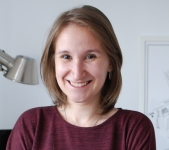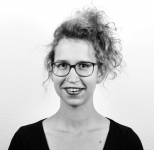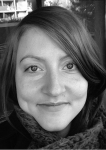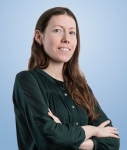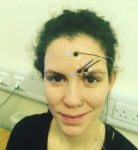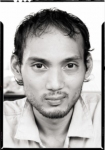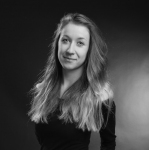Swiss Emotion Experience, Regulation and Support Lab (chEERS Lab)
The chEERS Lab (Swiss Emotion Experience, Emotion Regulation and Support Laboratory) at UniDistance Suisse and the University of Fribourg is a team of researchers who studies affective processes and their impact on our mental health and well-being.
Our research approach:
Our research centers on several inter-related questions.
- How do people regulate their emotions? We examine emotion regulation in different ages and populations with and without neurodevelopmental disorders and how emotion regulation impacts health and well-being. For example, we are interested in how individuals on the autism spectrum or with Williams syndrome regulate their emotions, and if and how others can help them with their regulation.
- Positive emotions: We are interested in understanding underlying mechanisms of possible differences in experiencing and expressing positive emotions in individuals on the autism spectrum compared to typically developing individuals.
- Sense of humor: In several research projects, we aim at understanding the efficacy of humor as an emotion regulation strategy but focus also on differences and similarities in the sense of humor in different populations.
- Play and games: We are interested in developing tools to promote the development of emotional competencies. We have created board games (chEERS games) that probe emotion recognition, understanding, and emotion regulation.
In our research projects, we use a multi-method approach, utilizing controlled experiments and studies that employ a variety of measures to induce and assess emotions:
- self- and parent reports (e.g., survey-based studies)
- autonomic physiology (e.g., cardiovascular and electrodermal activity)
- nonverbal behavior (e.g., facial expressions)
- virtual reality (VR)
- board games
- Participative research: our goal is to collaborate closely with individuals on the autism spectrum or Williams syndrome or their parents, to make sure our research questions and insights are relevant to them.
We also examine how key social and psychological factors shape how emotional competencies unfold differently across people:
- age (children, adolescents, adults)
- neurodevelopmental disorders (Autism, Williams syndrome)
Using these methods, our research contributes to a better understanding of affective processes and to formulate treatment implications.
How can you participate? We are recruiting French and German speaking participants for our various research projects, some of which are conducted online. You can contact us at any time to participate in one of our current studies:
TEAM
Current Members
Grid view
-
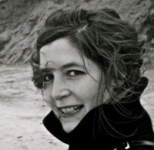
Prof. Andrea Samson
List view
-
Samson Andrea
Associate professor
-
Zaharia Alexandra
PhD student
Institute of Special Education, University of Fribourg -
Bressoud Nicolas
Invited researcher
-
Treichel Noémie
PhD student
-
Stallman Lina
PhD student
-
Papon Anouk
Research assistant
-
Di Poi Giona
PhD student
ALUMNI
Former lab members
Grid view
-

Dr. Daniel Dukes
-

Katharina Noir-Kahlo
List view
-
Kilicel Deniz
Research assistant
-
Dukes Daniel
Senior researcher and lecturer
-
Giannadou Katerina
PhD student
-
Noir-Kahlo Katharina
External collaborator
Institute of Special Education, University of Fribourg -
Tran Ngoc Michel
Scientific Collaborator
Institute of Special Education, University of Fribourg -
Rehm Samantha
Master student
CURRENT RESEARCH (RECRUITMENT)/RECHERCHE ACTUELLE (RECRUTEMENT)
Les émotions positives et la régulation émotionnelle / Positive Emotionen und Emotionsregulation
(study for French and German speaking participants)
Français
Nous sommes à la recherche de participants entre 5 et 55 ans avec ou sans trouble du développement (troubles du spectre de l'autisme, syndrome de Williams, déficiences intellectuelles) qui souhaitent participer à une étude rémunérée sur les émotions et les interactions sociales. Si intéressé(e), contactez-nous par e-mail: ou par téléphone: 079 521 36 95.
Pour plus de détails, veuillez consulter notre brochure: Etude sur les émotions positives et la régulation émotionnelle
Deutsch
Wir suchen Personen zwischen 5 und 55 Jahren mit oder ohne Entwicklungsstörung (z.B. Autismus Spektrum Störung, Williams-Beuren-Syndrom, Geistige Behinderung), welche interessiert sind, an einer Studie über Emotionen und soziale Interaktionen teilzunehmen. Sie werden für die Teilnahme vergütet. Melden Sie sich bei Interesse bitte via Email: oder rufen Sie uns an: 079 521 36 95.
Für detailliertere Informationen, bitten konsultieren Sie unsere Broschüre: Eine Studie über positive Emotionen und Emotionsregulation in sozialen Kontexten
PRESS RELEASES
Spezielle Bedürfnisse in der Pandemie (Special needs during the pandemic)
Radio rabe, Interview, January 13, 2021
Gefühle sind kein leichtes Spiel (Emotions are not an easy game)
Magazin Prävention und Gesundheitsförderung, December 2020
Die wunderwaffe Humor
Rabe-Info, November 16, 2020
I benefici dello humour
Coop Cooperazione, September 28, 2020
Wie geht es Familien von Kindern mit besonderen Bedürfnissenwährend der COVID-19 Pandemie?
How are families of children with special needs doing during the CO-VID-19 pandemic?
WGAS Newsletter n°16, September 2020
Humor zu Zeiten der Krise
Webinar, Interview von Bernhard Altermatt mit Andrea Samson, 7 July 2020
COVID-19: Familien mit besonderen Bedürfnissen am Anschlag?
Alma & Georges, May 26, 2020
T’as voulu voir les Goguettes ? (Did you want to see the Goguettes?)
Le Matin Dimanche, May 3, 2020
Autism researchers adapt studies for a socially distant world
Spectrum, April 30, 2020
L'humour ne modifie pas seulement nos émotions sur le moment
Le Temps, March 31, 2020
L'irrésistible besoin de rire en temps de crise
Bilan, March 29, 2020
The comedy circuity. The mechanics of a joke
New Scientist, 41–42, January 30, 2020
Einzigartige Forschungswelt
Kanal, Januar 9, 2020
Warum lachen Sie eigentlich?
Universitas, January 2020
Zeig mir, wie du spielst
Universitas, January 2020
Deux professeures de l’institut UniDistance basé en Valais lauréates de bourses du fonds national de la recherche
Le Nouvelliste, March 1, 2019
Riez, c'est bon pour la santé ?
Coopération no.7, Coop, February 12, 2019
Rire est vraiment bon pour notre santé
Planète Santé, July 4, 2018
Pourquoi rire nous rend heureux et plus sociables?
Tribune de Genève, March 11, 2017
Le jeu, un outil pour permettre aux enfants de mieux réguler leurs émotions
Le Journal de l'UNIGE, no. 127, February 16-March 2, 2017
What about humor in individuals with Autism Spectrum Disorder?
In: The People's Science, April 1, 2014
Humor ist kein Witz (Humour is not a joke)
Elternmagazin Fritz und Fränzi, 2013
How many psychologists does it take... to explain a joke? Christian Jarrett investigates the psychology of humour and comedy
The Psychologist, 26, 254–259, April, 2013
Stanford researchers investigate the emotional side of autism
Stanford Report, 2012
Stanford psychologists find that jokes help us cope with horrifying images
Stanford Report, August 1, 2011
Le fossé de l’humour. Le sourire, le rire et l’humour jouent un rôle essentiel, du flirt à la relation durable [The humour gap. Smile, laughter and humor play an essential role, from flirting to lasting relationships] Cerveau&Psycho, April 5, 2011
Das Absurde, Theory of Mind und das Gehirn (The absurd, theory of mind and the brain)
Universitas, das Magazin der Universität Freiburg, 44–46, September 2010
“Fliegt ein Himbeerjoghurt durch den Dschungel” (“Flies a raspberry yoghurt through the jungle”)
NZZ Campus, 30-32, Mai, 2009
Vos “blagues suisses” iront au musée (Your “Swiss jokes” will go to the museum.)
Le Matin bleu, February 26, 2009
“Es gibt auch Leute ohne Humor” (“There are also people without humor”)
Bote der Urschweiz, 9, February 21, 2009
Wie erkennt das Gehirn einen Witz? (How does the brain recognize a joke?)
P.M. Magazin Welt des Wissens, 12, 83, 2008
Bitte recht fröhlich (Please quite cheerful)
Gehirn & Geist, 11, 16–25, 2008
Wo ist der Witz? (Where is the joke?)
Die Zeit, July 26, 2007
Niemand möchte als humorlos gelten (Nobody wants to be humorless])
Der Weg: Schweizerischer Blinden und Sehbehindertenverban, 2007
Interview über Humor und Gehirn (Interview on the brain and humor)
Radio Rabe, October 27, 2006
Humor und Lachen. Wonach suchen HumorforscherInnen? (Humor and laughter. What do humor researchers look for?)
Psychoscope, September, 2006
Ein Experiment mit Humor (An experiment on humor)
Universitas, 29, September, 2006
Humor – eine Analyse aus wissenschaftlicher Perspektive (Humor – An analysis from a scientific perspective)
Uni reflets, 10, 7, August 31, 2006
L’Uni de Fribourg s’est transformée en école du rire [The University of Fribourg transformed in a school of laughter)
La Liberté, July 21, 2006
Die Universität von Fribourg nimmt das Lachen unter die Lupe (The University of Fribourg takes a closer look at laughter)
Radio Fribourg, July 17, 2006
Humor fördert die Lebensqualität: Humorwoche an der Universität Freiburg (Humor fosters quality of life: Humor week at the University of Fribourg)
Freiburger Nachrichten, July 15, 2006
Radio Kanal K Aarau, August 29, 2005
Kalila die Frauensendung: Radiointerview über Gender und Humor (Kalila the women's programme: Radio interview about gender and humor)
Radio Kanal K Aarau, November 29, 2004

